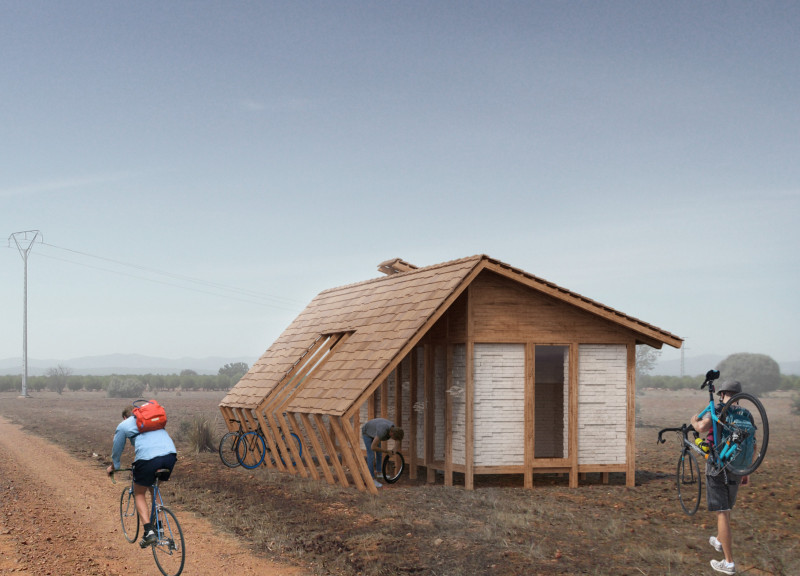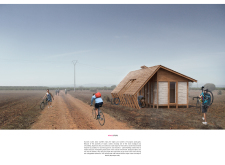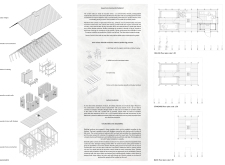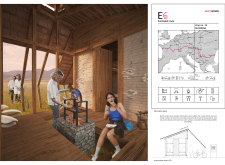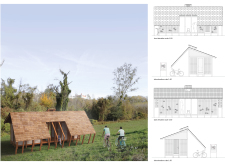5 key facts about this project
The MYCOSTOPS project addresses the growing need for sustainable stops along the Eurovelo cycling routes. Located in natural environments, these rest areas are designed specifically for cyclists, offering necessary facilities that enhance their travel experience. The overall concept focuses on creating structured spaces that encourage rest and social interaction, highlighting the connection between people and nature.
Modular Design
The design includes a modular structure made up of three main components: the Base Module, the Bedroom Module, and the Bathroom Module. Each of these modules has its own function, providing flexibility based on different site conditions and user needs. The Base Module features a terrace and a fireplace, which encourage interaction among travelers. The Bedroom Module includes bunk beds designed to accommodate four people, along with storage space for their gear. The Bathroom Module offers essential hygiene facilities and can be built if plumbing is available.
Materiality
Sustainability is a key aspect of MYCOSTOPS, which is evident in the choice of materials. The structure uses mycelium bricks, which are made from agricultural waste and oyster mycelium. This approach helps to reduce carbon emissions. Additionally, wooden frames made of pine timber are utilized, finished with ecological cedar shingles. These materials not only help with insulation but also support the overall commitment to being environmentally friendly.
User Experience and Information Integration
The design focuses on enhancing the user experience through integrated information systems. These systems provide cyclists with information about nearby amenities and distances to the next stops. This thoughtful feature ensures that the rest areas serve practical purposes as well as provide comfort.
Architectural details include a visual identity that harmonizes with the surrounding nature. Earthy tones and organic shapes are used to improve the overall aesthetic. This alignment invites cyclists to engage with their environment while enjoying the comforts of the MYCOSTOPS facilities.


